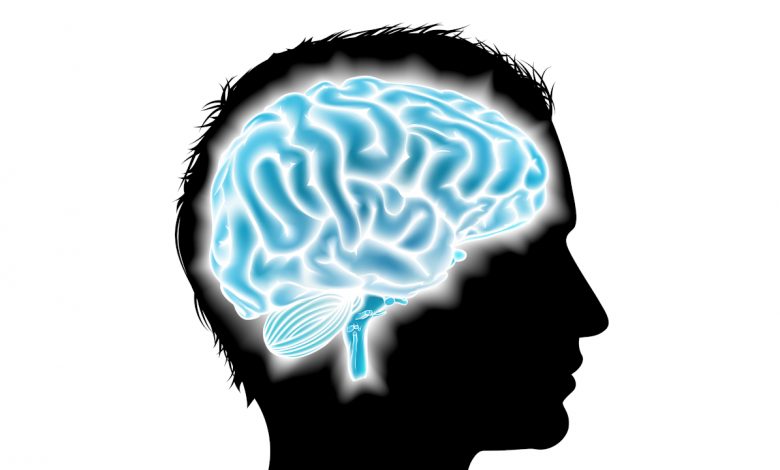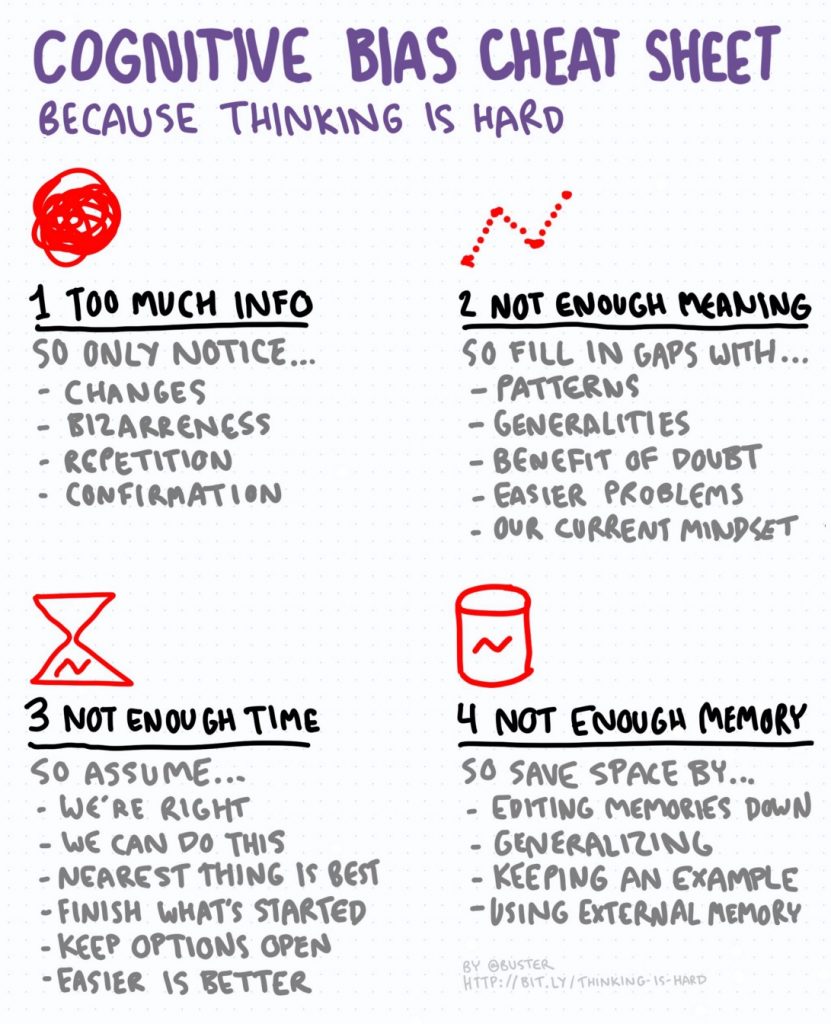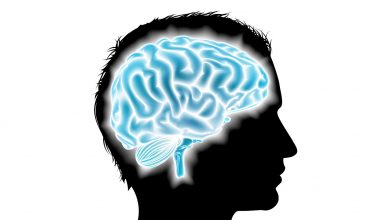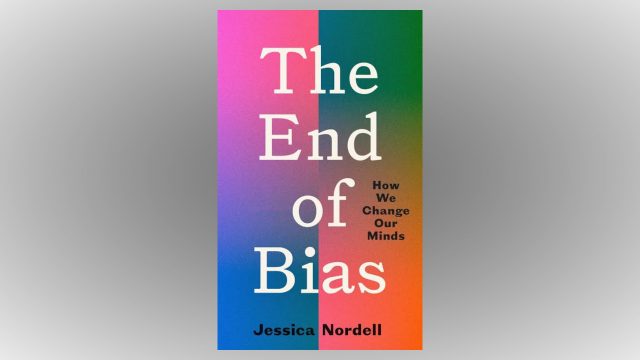
Simplified cognitive bias cheat sheet [Thinking is hard series]
This article is part of the Thinking is hard series from Buster Benson, offering insights into the cognitive biases that distort our thinking, and exploring related topics such as debate, persuasion, and systems thinking.
A previous RealKM Magazine article discussed how we have a wide range of cognitive biases because of the way our brains have evolved to deal with fundamental problems that humans face, and presented a cognitive bias cheat sheet and associated codex to help us understand how our biases limit our judgement, perceptions, and rationality.
The author of the cognitive bias cheat sheet, Buster Benson, has now produced a simplified version.
The four conundrums that lead to all biases
Benson’s simplified cognitive bias cheat sheet identifies four “condundrums” that lead to all biases: “There are 4 qualities of the universe that limit our own intelligence and the intelligence of every other person, collective, organism, machine, alien, or imaginable god”.
The conundrums are:
- There’s too much information. There’s too much information in the universe for any individual within the universe to process it all.
- There’s not enough meaning. The process of turning raw information into something meaningful requires connecting the dots between the limited information that’s made it to you and the catalog of mental models, beliefs, symbols, and associations that you’ve stored from previous experiences.
- There’s not enough time and resources. There just isn’t enough time in the moment/day/lifetime to thoroughly consider and analyze all possibilities to make sure we’re making the right decisions and taking the right actions.
- There’s not enough memory. There’s not enough space in our brains, or in all of the matter in the universe, to store all the raw information, all the symbols and stories, and all of the past decisions that we’ve made.
Benson has reduced all 200+ known cognitive biases into an image that could be used on your phone’s lock screen, taking the four conundrums and listing under each the key words related to the 20 categories of bias:
Save this picture to your phone, and use it to prompt you to think about how your cognitive biases impact on your view of the world, the conclusions you draw, and the decisions you make.
Source: Medium.






